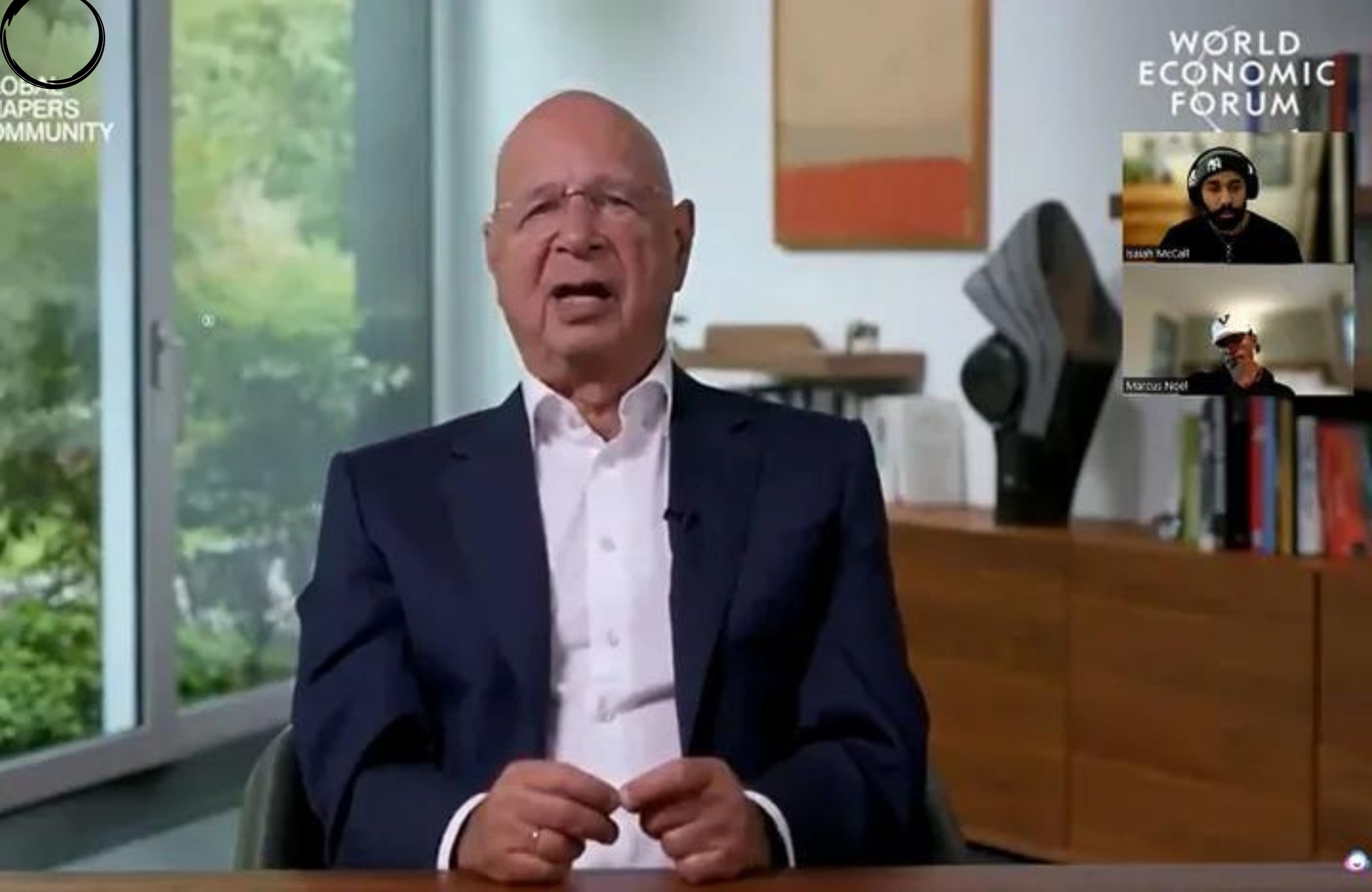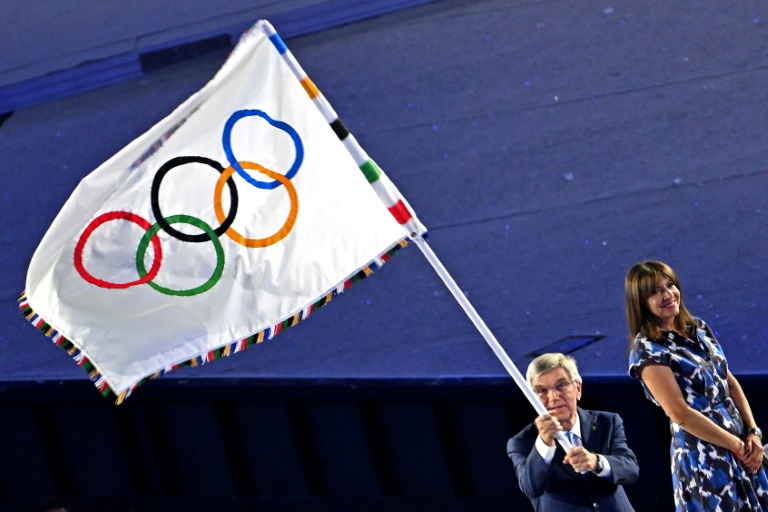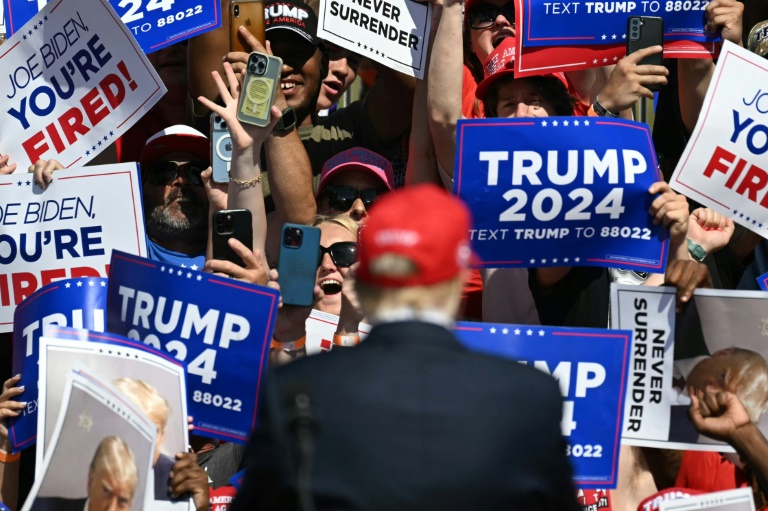The WEF is a utopian supergroup comprised of billionaires and other world leaders who want to redesign the world as they see fit.
In the WEF’s world, ordinary people will surrender their rights for societal progress, echoed in their mantra: “You will own nothing and be happy.”
We’ve covered all of this extensively before. I wanted to be proven wrong.
So, we reached out to a WEF member and had one of our best interviews ever.
Named after Marcus Garvey, Marcus Noel is a force in the WEF Global Shapers Community, a project that blew up thanks to Greta Thunberg. He is also a Forbes 30 under 30 honoree and serial entrepreneur.
You expect conversations with WEF members to go a certain way. This didn’t.
Here are 5 takeaways that will surprise you:
1. Are The WEF Good or Bad Guys?
We hope we don’t get Marcus in trouble for saying this, but many things the WEF says make his stomach churn.
“The issue here is what happens behind closed doors,” Marcus told me. “It’s who is actually benefiting from those solutions being created by the WEF. So we are creating these solutions, but who is benefiting from that solution? It doesn’t trickle down.”
It makes you question how many others share his sentiment.
WEF founder Klaus Schwab created the Forum of Young Global Leaders in 2004 to address intricate global problems. His vision was clear: build a community of next-generation leaders to drive decision-making, forge cross-cultural ties, and catalyze positive change.
Marcus was voted into the group in 2016. He quickly realized that what was being said was not actually happening.
In practice, Marcus argues, nothing will change until this old guard of ideas dies off and a new guard comes in to do the right thing.
“If that new guard comes in, and is influenced by the old guard and takes on those same character qualities, the same thing is going to happen: nothing,” Marcus says.
Klaus is no longer the leader of the WEF; he took a step back in May, and shortly after, The Wall Street Journal detailed accusations of harassment and discrimination, alleging Schwab’s inappropriate advances toward females that went unchecked by the forum.
Maybe he isn’t the best guy to crown as Earth’s first king.
2. Generation Alpha: The Big Bet to Save Humanity
“If we’re just looking at generations, I look at Gen Z as the end of the alphabet. Alpha is the beginning, meaning the future is Alpha.” — Marcus Noel
This grabbed me — not just as an elder Gen Z, but because it’s rare optimism in a sea of negativity for Zoomers and Gen Alpha.
Pessimism is typical of Boomer and Millennial talk. But Zoomers’ nihilism might be their edge. We distrust the system—college, 9-to-5 jobs, politicians, TV, and especially Boomers.
For instance, 49% of Baby Boomers use cable TV, and 59% watch 10+ hours of TV a week. Media will change forever post-Boomers.
And that’s only one thing in the tidal wave of changes.
Marcus is creating a LinkedIn-type app for Gen Z, and he works with many young people. He has a unique insight here: “Gen Z and Alpha are so emotionally intelligent. They’re so free. You can’t put them in boxes. That’s the energy that we need in this new world.”
3. The Third World War is The People Vs. The Lie
“Some of these leaders may have started off well, but the more wine they drink, the more their bellies are full, they’re disillusioned. They believe their own lies that they tell themselves for comfort.” — Marcus Noel
Marcus believes that the misinformation, lies, and corruption will get so bad that fear won’t be enough to stop people from revolting.
There are already encampments no nicer than Brazilian favelas in a ring around almost every major US city.
I’ve been to almost all of them: LA, NYC, Denver, Atlanta, Miami, Chicago, Dallas, Austin, OKC, San Fran. Though LA is the worst I’ve seen, it makes me think about what we tolerate and this increasing inequality.
How many of us will be considered poor as our currency debases?
Tribalism grows stronger day by day and when their back is against the wall the “Not in MY back yard!” people will have to decide if the system is broken. There’s nowhere left to run.
4. What Does the WEF Do Well?
Nothing.
5. Recreating Black Wall St.
Just kidding. As for that last one, Marcus revealed that the WEF nails its messaging better than any other organization on the planet.
“Klaus Schwab clearly organizes people really well,” Marcus says. “They’re definitely great at messaging, but are they good at telling the truth? Are they great at making change in a democratized way?”
We wrapped up our conversation talking about Marcus’s work to resurrect Black Wall St. in Tulsa, Oklahoma.
“Black Wall Street” was a self-reliant community that rose rapidly during the 1910s when it was against the law for blacks to shop at white-owned stores.
It was the Harlem of the Midwest, rising out of Reconstruction.
In 1921, it was all burnt to the ground in the largest racial massacre in American history.
Marcus is now assembling a team of Avengers to rebuild Black Wall St. and make Tulsa a mecca for tech and innovation.
With how high rents are in New York City, I might join him.
Final Thoughts
I’m reading legendary journalist Seymour Hersh’s memoir, inspiring me to research sources for any stories I write.
As Hersh puts it ‘back in his day’— deadly words I know — there were no televised panels of “experts” and journalists who began answering every question with the two deadliest words in media — ”I think.”
Having someone like Marcus in the WEF is reassuring. Knowing him has made me better for it.







